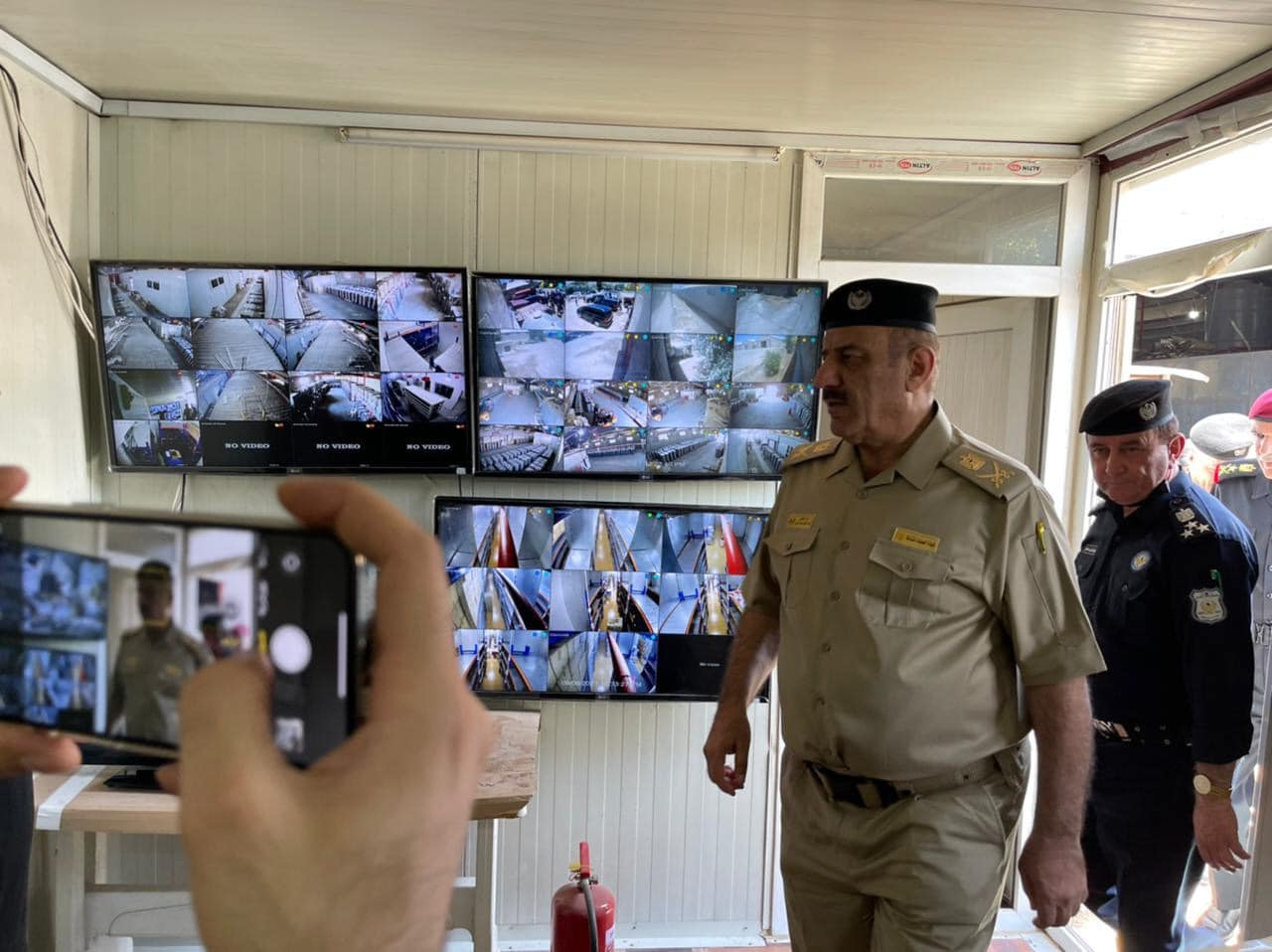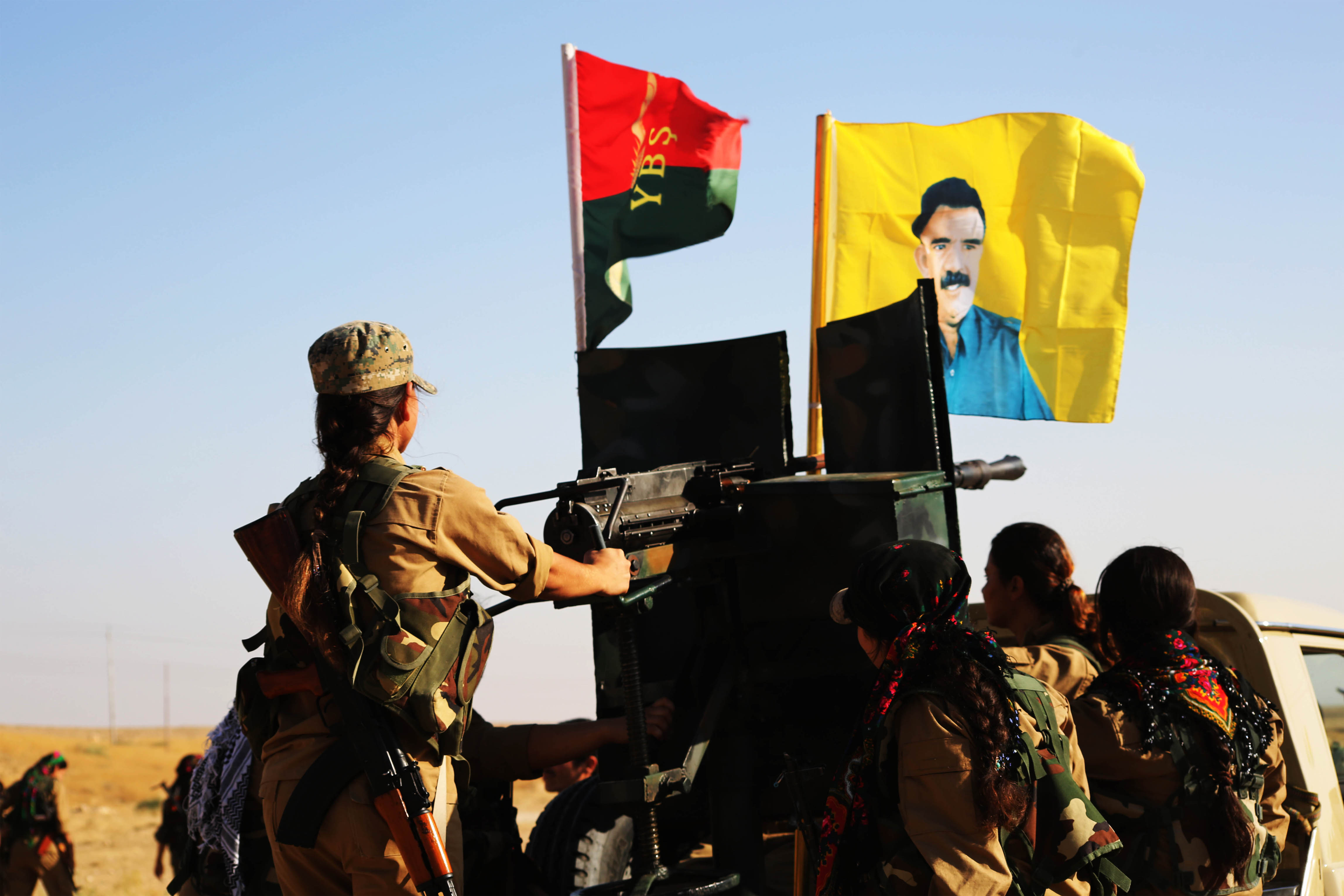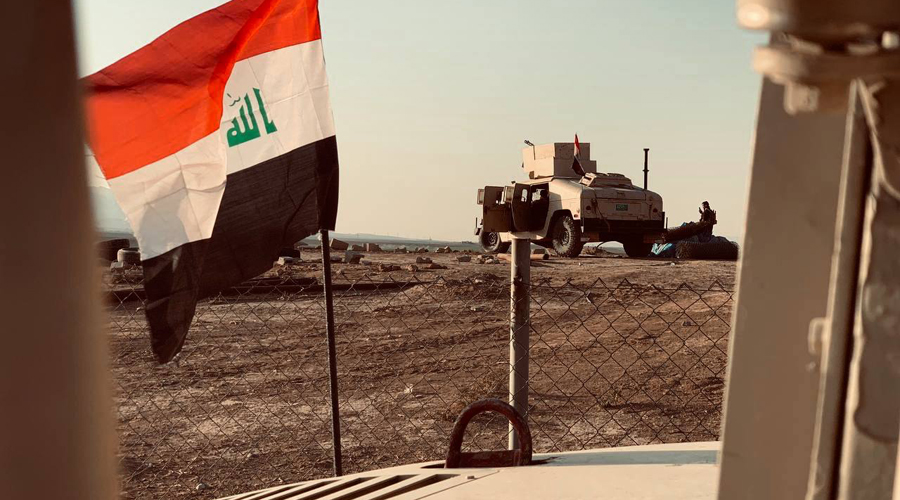The representative of the Kurdistan Regional Government KRG at the Iraqi joint operations’ command declared that the security situation is complicated in Shingal, the Ezidi region west of Nienwa, due to the deployment of illegal forces that should be sacked.
Major General Talat Abdul-Khaliq, KRG representative for joint operations’ command, an umbrella for Iraqi security and military forces, told KirkukNow in an interview the issue of deployment of two joint brigades by Baghdad and Erbil in the volatile disputed territories is a matter of time due to lack of sufficient budget.
“Illegal forces such as PKK and other Iraqi illegal forces is the reason behind the tension in the area,” Maj. Gen. Abdulkhaliq believes, yet he has not named the other armed groups.
The armed clashes between the Iraqi army and groups close to Kurdistan Wrokers’ Party PKK, fighting Turkey since 1980s and holding territories in Iraq, downtown of the war-torn Shingal, home to the Ezidi community, forced two thousand families to escape the fighting in Sinuny sub-district to the district of Shingal and camps for the displaced in the adjacent Duhok Northern Province and left casualties in both sides.

At the early hours of May 2nd, the first day of Eid al-Fitr, troops of the Iraqi army with heavy weapons supported by warplanes attacked two points of pro-PKKEzidkhan Asayish (Security), part of Yabasha or YBS, in Sinuny. Two were killed and 12 were injured from both sides, sources affirmed to KirkukNow.
On the 18th and 19th of April, armed clashes erupted after an army force asked Ezidkhan Asayish members to evacuate a military post near Sinuny sub-district of Shingal. A fighter of Yabsha was killed three injured, in addition to the injury of 21 soldiers of the army Iraqi army and three civilians.
Such illegal forces deployed in the region have to leave
The militants group affiliated to Kurdistan Workers' party PKK in 2014 provided a narrow safe escape from the grip of the extremist militants of the Islamic State of Iraq and Syria ISIS for the civilians to Mount Shingal and from there to the IDP camps in Duhok where still thousands of Ezidis live in tens of camps under tents, reluctant to return to the war-ravaged region.
They also played a remarkable role in the war against ISIS. Most of the YBS militants are Ezidis and part of the YBS has officially joined the Shiite paramilitary of Popular Mobilization Forces PMF.
“Such illegal forces deployed in the region have to leave according to Shingal agreement so as long as they stay, the agreement won’t be implemented,” Maj. Gen. Abdulkhaliq thinks.
“All the indications show they have no plan to evacuate so they have to be forced to leave.”

Ninewa: a group of YBS (Yabasha) militants. Media of the YBS
At present, the Iraqi government considers the implementation of the terms of the 2020 Shingal agreement concluded between the unilateral government and the Kurdistan Regional Government the only way to resolve the Shingal issue, which stipulates the need for forces close to PKK to evacuate their headquarters in Shingal, but the agreement has not been implemented so far in light of the presence of Eight different armed forces.
In the Ezidi-dominant region of Shingal, only three thousand square kilometers, Baghdad federal and Erbil regional governments compete to establish their rule following the claimed defeat of IS in 2017: three local administrations want to administer the district, and eight different armed groups are deployed.
There are more than eight different armed groups within the borders of Shingal district, including the PMF, Ezidikhan Asayish (security), YBS, Women Protection Units YPZh, the local police, the federal police, the Iraqi army, the Ezidkhan Peshmerga and the KRG Peshmerga (Kurdish fighter) forces.
The district of Shingal, 120 km west of Mosul, administratively affiliated to Ninewa province, and part of the disputed territories between Baghdad and Erbil, is home to over 300,000 Ezidis.
“The tension in Shingal is an issue that the Iraqi government has to address since the security situation there is under control of the joint operations’ command and no force except the federal ones should be there and the agreement to be implemented in this year,” AbdulKhaliq added.
Regarding the security vaccum in the disputed territories which has turned into a save heaven for ISIS militants and their hideouts, he confirmed the two joint brigades are ready, “waiting for budget and payroll which was postponed due to delay in formation of the new Iraqi government.”
The two joint brigades of the Iraqi army and the Kurdish Peshmerga had intensive training separately in Baghdad and Erbil last year in order to form two joint brigades to be tasked and deployed last December to secure hundreds of kilometers of security gap which ranges from Khanaqin on the border with Iran via Kirkuk up to Sihela on the borders with Syria.
The efforts were intensified following tens of attacks by the regrouping militants of ISIS targeted the Peshmerga forces in Diyala, Kirkuk and Ninewa borderlines.
The teams of Iraqi ministry of defense and Ministry of Peshemrga MOP under the Kurdistan Regional Government KRG have been negotiating over months to form two joint brigades to fill in the security gap in the disputed territories.
“The current cabinet is caretaker thus not authorized to allocate a budget for the two brigades.”
On April 24th, a number of the Kurdish Peshemrga (Fighters) protested in Kirkuk the delay in payment of monthly salaries though they have passed intensive trainings as part of the two joint brigades, calling for determination of their position.
“They have the right to ask for salaries and the Iraqi government is in charge of that,” the Kurdish commander said.
Following October 10th General Elections, the political fractions have failed to gather legal quorum to vote for the new cabinet.
“It is true that those two bridgaes have not been deployed yet but the area is not deserted since the Iraqi and the Kurdish forces each are deployed in their positions from each side and some areas to be secured by joint troops of Iraqi army and the Peshmerga.”
Sleeper cells and resistant pockets of ISIS militants are regrouping in the rural areas of the disputed territories between Baghdad and Erbil. They are posing a high threat by different tactics such as hit-and-run attacks, kidnappings, IEDs and roadside bombs targeting the Iraqi forces and civilians.





